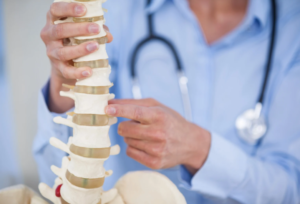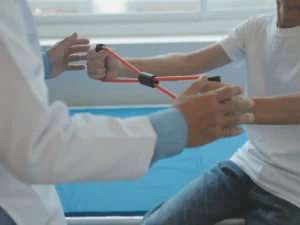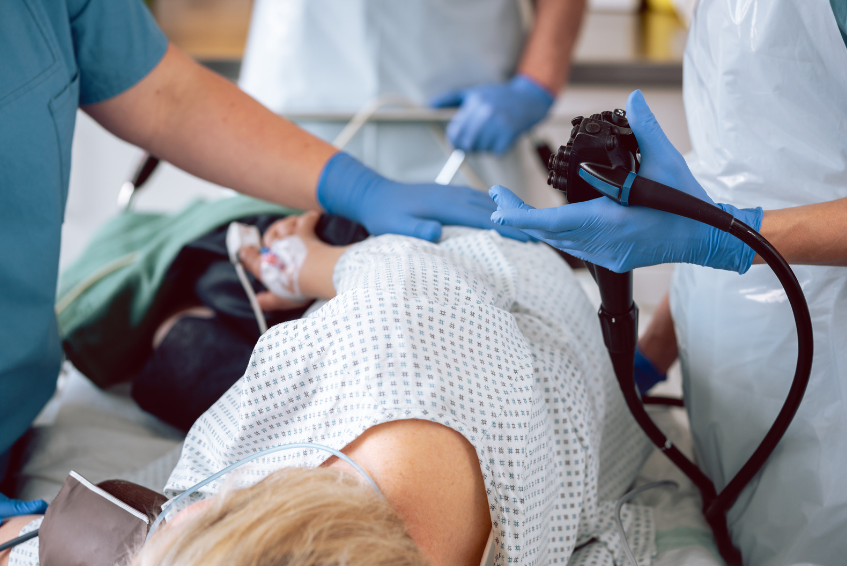A colonoscopy is a crucial procedure for monitoring digestive health and detecting early signs of issues such as colorectal cancer. Proper preparation is vital to ensure the procedure goes smoothly and provides accurate results. The more prepared you are, the easier and more effective the colonoscopy will be. This guide will walk you through essential tips to help you prepare for your colonoscopy, ensuring a successful experience from start to finish.
What is a Colonoscopy?
A colonoscopy is a medical procedure that allows doctors to examine the inside of your colon and rectum using a flexible tube with a camera. This procedure is typically performed to identify abnormalities, such as polyps, tumors, or signs of diseases like colorectal cancer. Colonoscopies are an essential part of preventative healthcare, particularly for those over 50 or with certain risk factors. Knowing what a colonoscopy involves helps reduce any anxiety you may feel when preparing for the procedure.
Why Proper Preparation is Key to a Successful Colonoscopy
The key to a successful colonoscopy lies in the preparation process. Proper preparation ensures that your colon is thoroughly cleansed, allowing the doctor to get a clear view of the colon’s interior. If the colon is not adequately cleaned, it can lead to delays, the need to repeat the procedure, or inaccurate results. Therefore, taking the time to follow all pre-procedure instructions closely is essential to a smooth colonoscopy and accurate diagnosis.
Step-by-Step Guide to Preparing for Your Colonoscopy
Follow the Pre-Procedure Diet
One of the most important aspects of preparing for a colonoscopy is adhering to the prescribed diet. In the days leading up to the procedure, you will likely need to follow a clear liquid diet. This helps clear out your colon, ensuring that there is no residue that could obstruct the doctor’s view. Avoid consuming solid foods, red or purple liquids, and dairy products. Drinking plenty of fluids during this time is essential to stay hydrated and support your body through the process of cleansing for the colonoscopy.
The Laxative and Bowel Cleanse
To prepare your colon for a colonoscopy, your doctor will provide a bowel preparation kit, which typically includes a strong laxative to help cleanse your intestines. This step is crucial for ensuring that the colonoscopy provides clear results. The laxative may cause discomfort such as frequent trips to the bathroom, but it’s important to stick to the instructions carefully. Drinking the solution as directed, often over a specific time frame, will help empty your bowels and prepare for the colonoscopy. If you find the taste unpleasant, try chilling the solution or drinking it through a straw to make it easier to tolerate.
Adjust Medications as Directed
Depending on your current medications, you may need to adjust your routine leading up to the colonoscopy. Some medications, particularly blood thinners or supplements, may need to be paused or adjusted before the procedure. It’s crucial to inform your doctor of all medications you are taking, including over-the-counter supplements, to ensure there are no complications during the colonoscopy. Your healthcare provider will give you specific instructions on how to manage your medications.
Arrange for Transportation
A colonoscopy typically involves sedation, so it’s necessary to arrange for someone to drive you home after the procedure. While the sedation will help keep you comfortable during the colonoscopy, it can take a few hours for the effects to wear off. Plan ahead by arranging transportation to ensure a smooth post-procedure experience. Most clinics and hospitals will require you to have someone escort you home for safety reasons.
Common Challenges and How to Overcome Them
Dealing with the Taste of Bowel Prep
One common challenge many people face when preparing for a colonoscopy is the unpleasant taste of the bowel preparation solution. Fortunately, there are several ways to make this process more tolerable. You can try chilling the solution before drinking it, or using a straw to bypass some of the taste. Additionally, sipping the solution slowly over time may make the experience less overwhelming. Keep in mind that thorough preparation is crucial for a successful colonoscopy, so it’s worth persevering through the discomfort.
Managing Discomfort During the Procedure
While most people find that a colonoscopy is relatively painless due to sedation, some discomfort may still occur. It’s normal to feel some bloating, cramping, or gas during or after the procedure. However, the sedation provided during the colonoscopy should keep the procedure comfortable. You can discuss sedation options with your doctor ahead of time to ensure you are comfortable with the level of sedation for your colonoscopy.
What to Expect on the Day of Your Colonoscopy
Arriving at the Clinic or Hospital
On the day of your colonoscopy, make sure to arrive early, allowing ample time for check-in and preparation. You will likely be asked to change into a hospital gown before the procedure begins. Make sure to bring any required documents, including identification, insurance information, and a list of medications you are currently taking. Preparing ahead of time ensures the day of the colonoscopy goes smoothly and allows you to focus on the procedure.
During the Procedure
During the colonoscopy, a doctor will insert a flexible tube (colonoscope) into your rectum to examine the interior of your colon. The tube is equipped with a camera to transmit images to a monitor, allowing the doctor to identify any abnormal areas. Most people are sedated for the colonoscopy, so they do not feel the procedure itself. You may experience mild cramping or discomfort as the colonoscope moves through the colon, but this is typically manageable with sedation.
Post-Procedure Recovery
After your colonoscopy, you may feel groggy due to the sedation. It’s normal to experience some bloating, gas, or mild cramping after the procedure. These symptoms typically subside within a few hours. It’s important to take it easy and follow your doctor’s post-procedure instructions. You may be advised to avoid driving for the rest of the day, and you’ll need someone to take you home. Make sure to follow any specific aftercare recommendations for a smooth recovery.
Tips for a Smooth Colonoscopy Experience
To ensure a smooth experience during your colonoscopy, stay calm and follow your doctor’s instructions carefully. Being well-prepared will help reduce any anxiety and make the process more manageable. If you have concerns, don’t hesitate to speak with your healthcare provider beforehand. Having someone accompany you on the day of the colonoscopy can also provide emotional support, which can ease any stress.
Takeaway
Preparing for a colonoscopy may seem like a lot of work, but the benefits far outweigh the challenges. Proper preparation ensures that your colonoscopy is as comfortable and effective as possible, giving your doctor the best chance of detecting any health concerns early. By following the tips outlined in this guide and consulting with your healthcare provider, you can approach the procedure with confidence and peace of mind.











